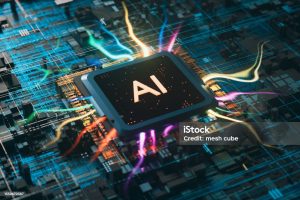
Introduction to Artificial Intelligence (AI)
Artificial Intelligence (AI) refers to the simulation of human intelligence in machines that are programmed to think like humans and mimic their actions. The goal of AI is to develop systems capable of performing tasks that typically require human intelligence, such as visual perception, speech recognition, decision-making, and language translation.
Key Concepts of AI
- Machine Learning: A subset of AI that enables machines to learn from data and improve their performance over time without explicit programming.
- Deep Learning: A specialized field of machine learning inspired by the structure and function of the human brain, known as artificial neural networks.
- Natural Language Processing (NLP): AI techniques used to analyze, understand, and generate human language in a way that is meaningful.
- Computer Vision: AI technology focused on enabling machines to interpret and understand visual information from the world.
Applications of AI
- Healthcare: AI is revolutionizing diagnostics, personalized treatment plans, and drug discovery.
- Finance: AI algorithms are used for fraud detection, algorithmic trading, and personalized financial advice.
- Transportation: Autonomous vehicles are a prime example of AI in action, reshaping the future of transportation.
- Retail: AI-powered recommendation systems help businesses offer personalized shopping experiences.
Ethical Considerations
AI raises important ethical questions related to privacy, bias in algorithms, job displacement, and the ethical use of AI in warfare and surveillance.
Future Trends
- AI and Robotics: Continued integration of AI with robotics to create more intelligent and capable machines.
- AI Ethics: Increasing focus on developing ethical guidelines and regulations for the responsible use of AI.
- AI in Everyday Life: AI will continue to influence various aspects of everyday life, from smart homes to virtual assistants.
Challenges and Limitations
Despite its rapid advancement, AI faces several challenges and limitations:
- Data Quality and Bias: AI systems heavily rely on data for training. Biases in data can lead to biased outcomes, reinforcing existing societal inequalities.
- Transparency and Interpretability: Deep learning models, while powerful, can be difficult to interpret. Understanding how AI arrives at decisions is crucial for trust and accountability.
- Job Displacement: Automation driven by AI raises concerns about job displacement, requiring proactive strategies for workforce reskilling and adaptation.
- Security and Privacy: AI systems can be vulnerable to adversarial attacks and pose risks to personal privacy if not properly secured.
Current Research and Developments
- AI for Climate Change: Researchers are exploring AI’s potential to tackle climate change through better resource management, renewable energy optimization, and climate modeling.
- AI and Healthcare: AI is driving innovations in personalized medicine, disease prediction, and drug discovery, improving patient outcomes and healthcare efficiency.
- AI in Education: AI-powered tutoring systems and adaptive learning platforms are enhancing personalized learning experiences for students worldwide.
- AI in Agriculture: Precision agriculture techniques powered by AI are optimizing crop yields, minimizing environmental impact, and improving food security.
Future Prospects
- AI and Creativity: Advancements in AI are blurring the line between human creativity and machine-generated art, music, and literature.
- AI in Space Exploration: AI technologies are crucial for autonomous spacecraft navigation, data analysis from space missions, and planning future explorations.
- Ethical AI Development: The development of AI must be accompanied by robust ethical guidelines and regulations to ensure fairness, accountability, and transparency.